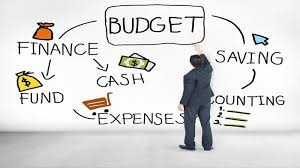Budgeting Tips for Beginners: Take Control of Your Finances
Managing your money effectively starts with a solid budget. If you’ve ever felt overwhelmed by your finances or unsure where your money is going, you’re not alone. Learning how to budget is a crucial step toward achieving financial stability and meeting your long-term goals.
In this guide, we’ll explore budgeting tips for beginners that are practical, easy to implement, and designed to help you take control of your finances. Whether you’re just starting your financial journey or looking to improve your money management skills, these personal finance tips will set you on the right path.
Why Budgeting Is Essential
Creating a budget isn’t just about tracking expenses; it’s about empowerment. A budget gives you a clear picture of your financial situation, helping you make informed decisions about spending and saving.
Benefits of Budgeting:
- Financial Clarity: Know exactly where your money is going.
- Debt Reduction: Allocate funds to pay down debt faster.
- Savings Growth: Plan for emergencies, retirement, and future goals.
- Stress Reduction: Reduce financial anxiety by staying organized.
Budgeting Tips for Beginners
1. Set Clear Financial Goals
Before diving into budgeting, identify your financial priorities. Ask yourself:
- Are you saving for a big purchase, like a house or a car?
- Do you need to pay off debt?
- Are you building an emergency fund?
Your goals will guide how you allocate your money.
2. Track Your Expenses
One of the most important budgeting tips is understanding where your money goes. Spend a month tracking all your expenses, from rent to coffee runs. Use apps like Mint or YNAB (You Need a Budget) to make this process easier.
3. Choose a Budgeting Method That Works for You
There’s no one-size-fits-all approach to budgeting. Here are a few popular methods:
- 50/30/20 Rule: Allocate 50% of your income to needs, 30% to wants, and 20% to savings or debt repayment.
- Envelope System: Assign cash to envelopes for each spending category. When the envelope is empty, you stop spending.
- Zero-Based Budgeting: Ensure every dollar is assigned a purpose, with income minus expenses equaling zero.
4. Separate Needs from Wants
A key to effective budgeting is distinguishing between essential expenses (needs) and discretionary spending (wants).
- Needs: Rent, utilities, groceries, transportation.
- Wants: Dining out, subscriptions, entertainment.
Cutting back on wants can free up money for your savings or debt repayment goals.
5. Create an Emergency Fund
An emergency fund acts as a financial safety net. Start small by saving $500 to $1,000, and gradually work toward covering 3–6 months’ worth of expenses.
6. Use Technology to Your Advantage
Personal finance apps like Mint, PocketGuard, and EveryDollar make budgeting easier by tracking expenses and helping you stick to your plan.
7. Review and Adjust Your Budget Regularly
Life changes, and so should your budget. Review your budget monthly to ensure it reflects your current financial situation and goals.
Overcoming Common Budgeting Challenges
“I Don’t Have Enough Money to Budget”
Budgeting isn’t about having extra money—it’s about managing what you have. Even a small income benefits from a budget, as it helps you maximize every dollar.
“I Can’t Stick to My Budget”
If you find it hard to stick to your budget, try these tips:
- Automate savings to avoid spending the money elsewhere.
- Build a buffer for unexpected expenses.
- Reward yourself for hitting budget goals.
Financial Planning Basics: What Beginners Should Know
Budgeting is just one part of a broader financial plan. Here are a few additional financial planning basics to keep in mind:
1. Understand Your Income
Know your net income (after taxes) to create a realistic budget.
2. Pay Off High-Interest Debt
Focus on paying down credit card balances or loans with high-interest rates to free up more money for savings.
3. Invest in Your Future
Even small contributions to a retirement account, such as a 401(k) or IRA, can grow significantly over time thanks to compound interest.
Frequently Asked Questions About Budgeting
1. How Do I Start Budgeting if I’ve Never Done It Before?
Start by tracking your income and expenses for one month. This gives you a baseline to create a budget that fits your lifestyle.
2. What Is the Best Budgeting Method?
The best budgeting method depends on your preferences. Beginners often find the 50/30/20 rule straightforward and easy to follow.
3. How Can I Save Money on a Tight Budget?
Focus on small changes, like reducing dining out, canceling unused subscriptions, or finding cheaper alternatives for necessities.
4. How Often Should I Review My Budget?
Review your budget monthly or whenever you experience significant financial changes, such as a new job or unexpected expenses.
5. What Tools Can Help Me Budget?
Popular budgeting apps like Mint, YNAB, and PocketGuard offer features like expense tracking, goal setting, and alerts for overspending.
Take Control of Your Finances Today
Budgeting may seem daunting at first, but with these budgeting tips for beginners, you can build a plan that works for you. By understanding how to budget and following these personal finance tips, you’ll be well on your way to achieving financial freedom.
Start small, stay consistent, and remember that every step forward is progress. Take control of your finances today, and watch your confidence and savings grow!
This article naturally integrates your keywords—budgeting tips, how to budget, budgeting for beginners, personal finance tips, and financial planning basics—while maintaining a clear, helpful tone for readers. Let me know if you’d like further edits!
Are you looking to take control of your financial future but unsure where to start? Budgeting is the cornerstone of financial health and independence. Whether you’re just starting out or need a refresher, these budgeting tips will guide you toward financial stability and peace of mind.
Understanding the Basics of Budgeting
Before diving into the specifics, it’s essential to understand what budgeting truly means. At its core, budgeting is about creating a plan for your money. It’s about understanding where your money is going, identifying areas where you can save, and ensuring you have enough for your financial goals. Here’s how to budget effectively:
1. Track Your Expenses
The first step in budgeting for beginners is understanding your current spending habits. Track your expenses for at least a month to get a clear picture of where your money goes. Use apps or spreadsheets to categorize your spending and identify areas where you may be overspending.
2. Set Clear Financial Goals
Having clear financial goals can motivate you to stick to your budget. Whether it’s saving for a vacation, paying off debt, or building an emergency fund, knowing what you’re working towards can make budgeting feel more purposeful and rewarding.
3. Create a Realistic Budget
Based on your tracked expenses and financial goals, create a budget that allocates your income towards necessities, savings, and discretionary spending. Make sure it’s realistic and flexible enough to accommodate unexpected expenses. Include categories such as housing, groceries, transportation, and entertainment.
4. Prioritize Savings
One of the most important personal finance tips is to pay yourself first. Prioritize saving by setting aside a portion of your income as soon as you get paid. Consider automating transfers to your savings account to ensure consistency.
5. Cut Unnecessary Expenses
Review your budget regularly to identify and cut unnecessary expenses. Whether it’s a subscription you no longer use or dining out too often, cutting these can free up funds for savings or debt repayment.
6. Review and Adjust Regularly
Financial planning basics include reviewing your budget regularly. Life circumstances and financial goals can change, so it’s crucial to adjust your budget as needed. Regular reviews also help you stay on track and make informed financial decisions.
7. Use Budgeting Tools
Take advantage of online budgeting tools and apps that can simplify the process. These tools can help you track expenses, set reminders for bills, and even offer insights into your spending habits.
Conclusion
Taking control of your finances starts with effective budgeting. By tracking expenses, setting clear goals, and regularly reviewing your budget, you can achieve financial stability and peace of mind. Remember, the journey to financial independence is a marathon, not a sprint. Use these budgeting tips to guide you, and soon you’ll be on the path to financial success. Start today and take charge of your financial future!




